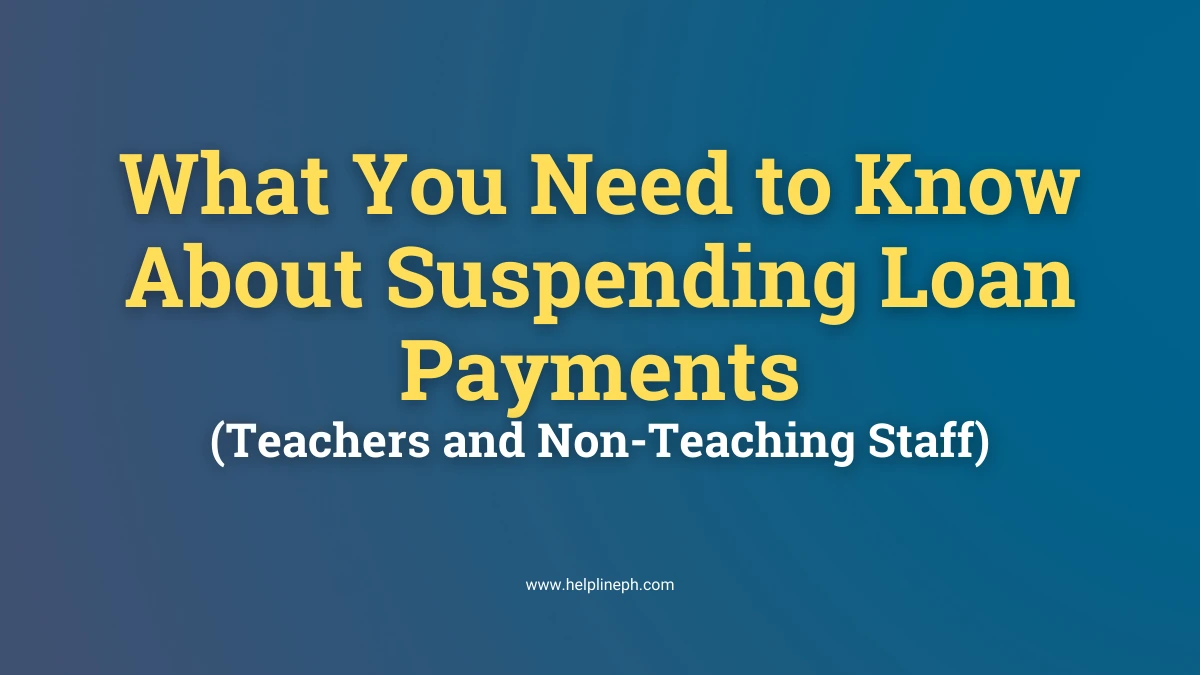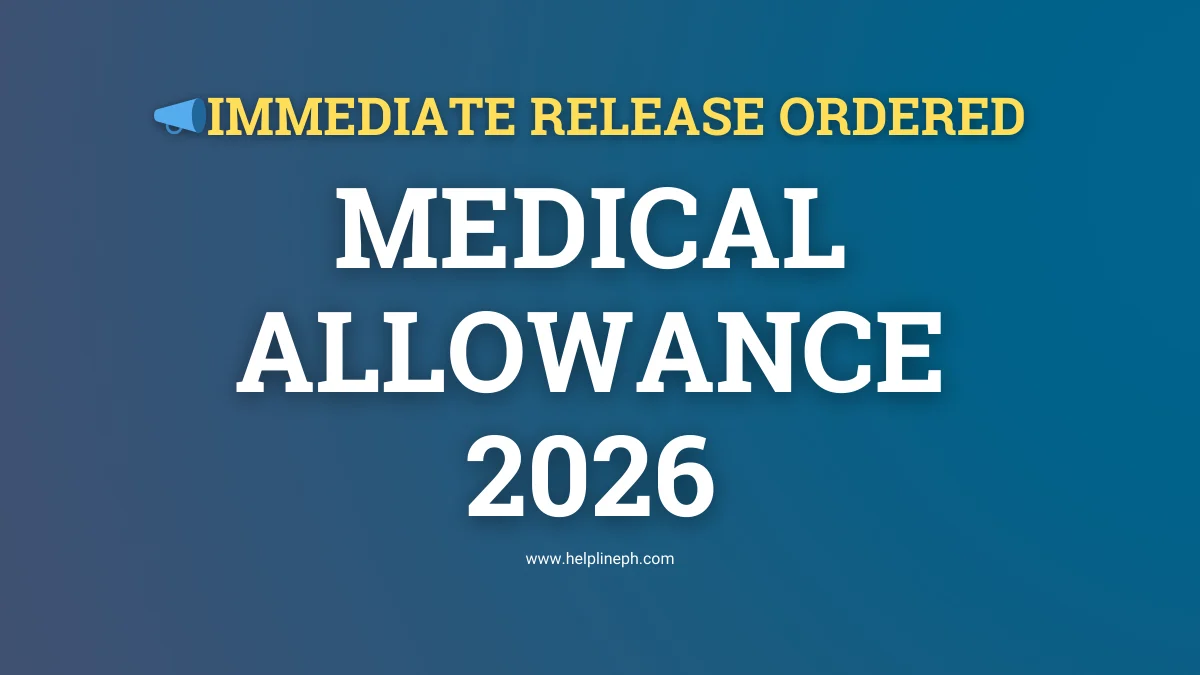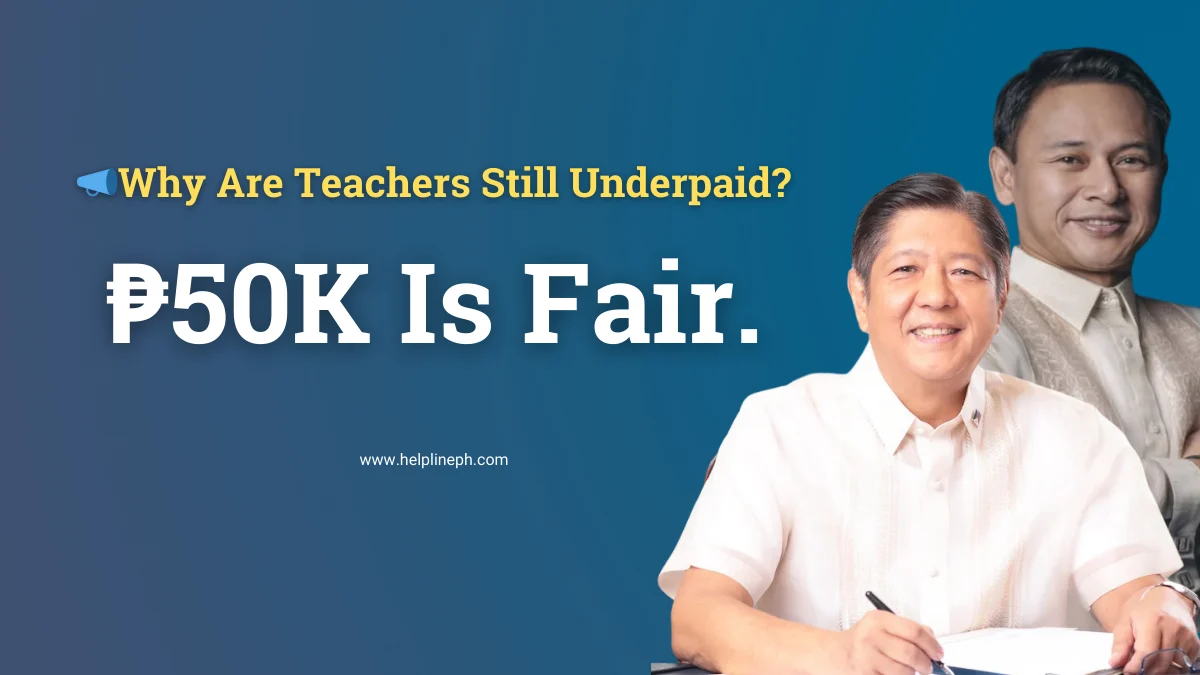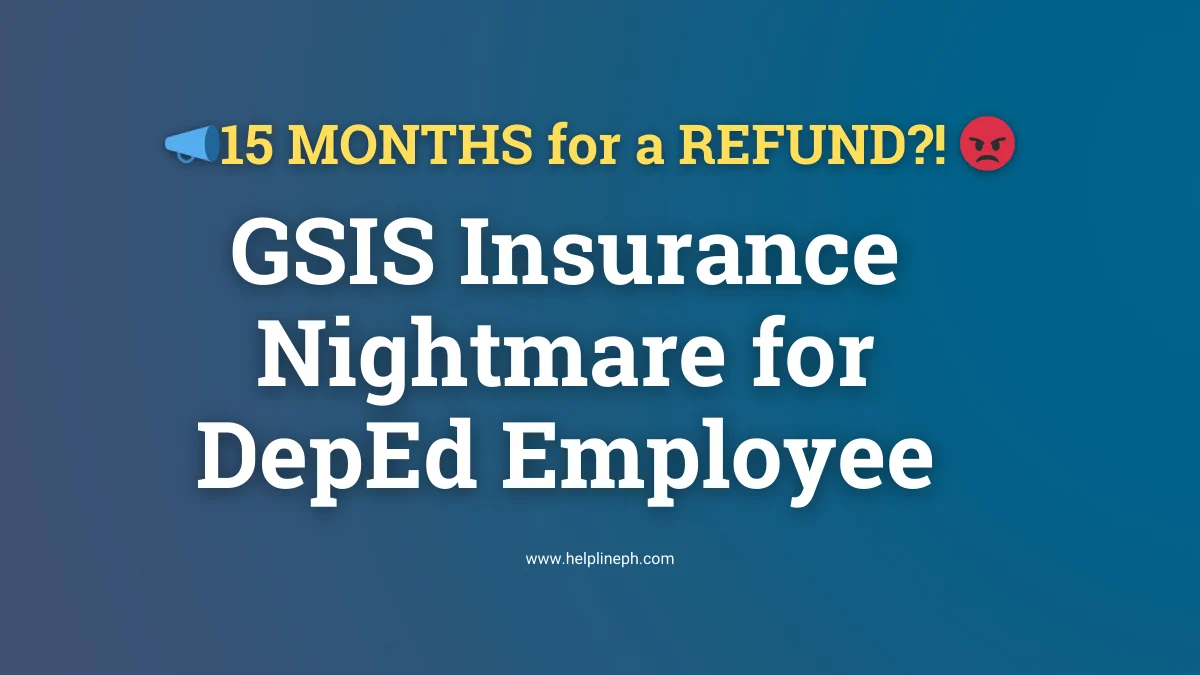The suspension of loan payments, also called a loan moratorium, is a helpful step introduced by the Department of Education (DepEd). It aims to support teachers and other employees facing financial challenges, especially during tough times. This article explains what a loan moratorium is, what actions DepEd has taken, and how it helps its staff.
What is a Loan Moratorium?
A loan moratorium is a temporary pause or delay in paying loans. During this period, borrowers are not required to pay:
- Monthly loan payments
- Interest fees
- Other related charges
This gives people relief from financial obligations for a specific time, helping them manage their expenses better.
What Actions Did DepEd Take?
DepEd took several steps to assist its employees with their loan payments:
- Requested Suspension from Financial Institutions
DepEd asked all banks and lending agencies to suspend loan payments for teachers and staff. - Coordinated with GSIS
DepEd worked with the Government Service Insurance System (GSIS) to ensure loan payments of its members are temporarily stopped. - Requested Support from BSP
DepEd also reached out to the Bangko Sentral ng Pilipinas (BSP), asking them to ensure suspended loans are not classified as “non-performing,” meaning it won’t affect the credit standing of borrowers.
These actions aim to reduce financial pressure on DepEd employees, especially during challenging times.
How Long Will the Loan Moratorium Last?
The suspension periods vary based on circumstances:
- For All DepEd Employees
- Loan payments are suspended for December 2024.
- Payments will resume starting January 2025.
- For Employees in Disaster-Affected Areas
- Loan payments are suspended from January to March 2025.
- Payments will resume in April 2025.
This extended moratorium gives extra relief to those directly affected by calamities.
Who Qualifies for the Loan Moratorium?
The moratorium applies to specific groups:
- For December 2024 Suspension
- All DepEd employees, both teaching and non-teaching staff, are covered.
- For January to March 2025 Suspension
- Only employees living or working in areas declared as calamity zones by:
- The Office of the President
- Local Government Units (LGUs)
- The Office of Civil Defense
- Only employees living or working in areas declared as calamity zones by:
Areas affected by disasters starting September 2024 are included in this coverage.
What Does the Loan Moratorium Cover?
The moratorium covers all types of charges related to loan payments, such as:
- Monthly payments
- Interests
- Penalties or additional costs
This means employees will not have to pay anything during the moratorium period.
How Does This Help DepEd Employees?
The loan moratorium is a big help for teachers and staff who are struggling financially. Here’s why it’s important:
- Financial Relief: Employees get time to recover without worrying about loan payments.
- Support After Calamities: Those in disaster-hit areas have extra time to focus on rebuilding their lives.
- Reduced Stress: It eases the financial burden, allowing employees to focus on their work and personal needs.
Frequently Asked Questions (FAQs)
What happens to unpaid interest during the moratorium?
Unpaid interest is usually added to the loan balance but will not cause penalties during the moratorium period.
Do I need to apply for the moratorium?
If you are in a calamity-declared area, you might need to submit proof to qualify. Otherwise, all DepEd employees are automatically included for December 2024.
Can I still pay my loans if I want to?
Yes, voluntary payments are allowed if you want to reduce your loan balance during the suspension period.
Will this affect my credit score?
No, DepEd requested financial institutions and BSP to protect borrowers from being marked as having “non-performing loans.”
The loan moratorium is a timely and much-needed measure to support DepEd employees. It shows the government’s commitment to easing financial burdens, especially for those affected by calamities. If you are eligible, take this opportunity to recover financially and plan ahead for when payments resume.






